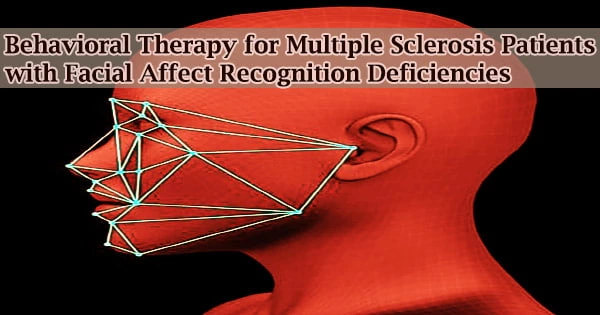Researchers from the Kessler Foundation recently examined the effectiveness of the behavioral therapy EMOPRINT for correcting facial recognition deficiencies in MS (multiple sclerosis) patients.
On January 19, 2022, Multiple Sclerosis and Related Disorders epublished the article titled “Emotional processing intervention (EMOPRINT): A blinded randomized control trial to treat facial affect recognition deficits in multiple sclerosis.”
The study is the first to offer Class I evidence demonstrating the effectiveness of a treatment for certain MS impairments.
The authors are Helen M. Genova, PhD, Katie Lancaster, PhD, Zuzanna Myszko, Jimmy Morecraft, Jacqueline Leddy, Angela Smith, MA, Nancy Chiaravalloti, PhD, and Jean Lengenfelder, PhD, of Kessler Foundation.
In this double-blinded, placebo-controlled, randomized clinical trial of EMOPRINT, a five-week, 12-session behavioral intervention for teaching facial recognition of the six universal emotions of happiness, sadness, fear, surprise, anger, and disgust, researchers compared 21 MS patients with 15 placebo controls.
Participants had baseline and follow-up neuropsychological evaluations of their ability to recognize facial affect, as well as evaluations of their general well-being and emotional capacity. At the follow-up, the MS group’s facial emotion recognition abilities significantly outperformed those of the placebo group.
Improving facial recognition may improve interpersonal relationships and lead to better outcomes at home and in the workplace. The success of EMOPRINT in this MS study is an important first step toward the larger-scale, longer-term studies of social cognition we need to study these potential effects.
Helen M. Genova
The effectiveness of EMOPRINT has significant ramifications for MS patients as well as for other populations that struggle with facial recognition difficulties, such as those with autism, traumatic brain injury, and schizophrenia.
According to lead author Dr. Genova, a specialist in the study of social cognition and the Foundation’s associate director of the Center for Autism Research, deficiencies in facial recognition, which are known to impair social functioning, are frequently linked to mood disorders and a lower quality of life.
“Improving facial recognition may improve interpersonal relationships and lead to better outcomes at home and in the workplace,” she added. “The success of EMOPRINT in this MS study is an important first step toward the larger-scale, longer-term studies of social cognition we need to study these potential effects.”





